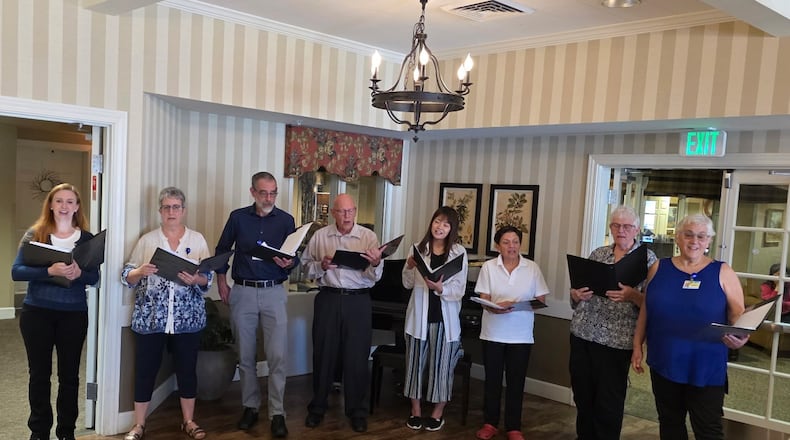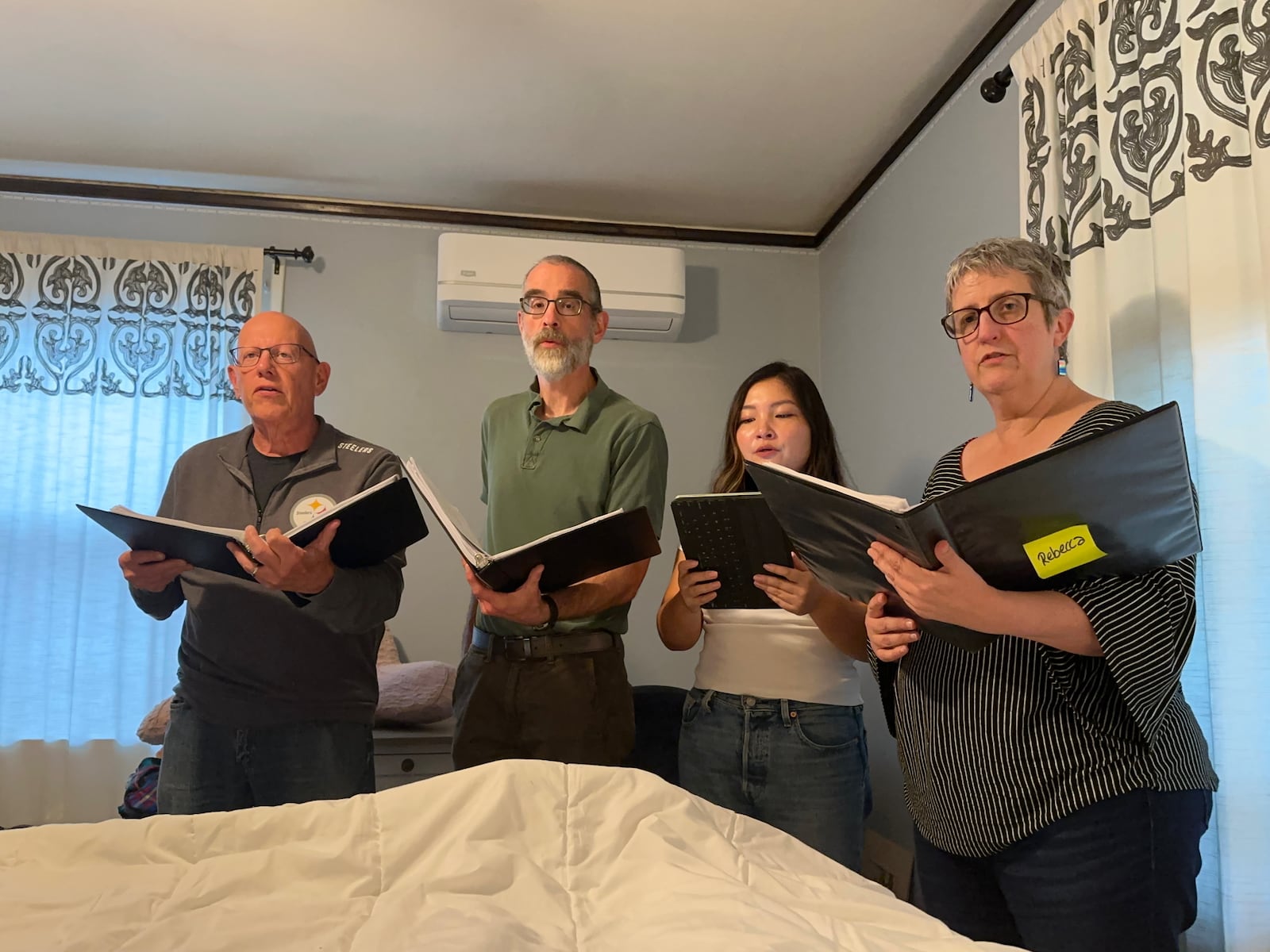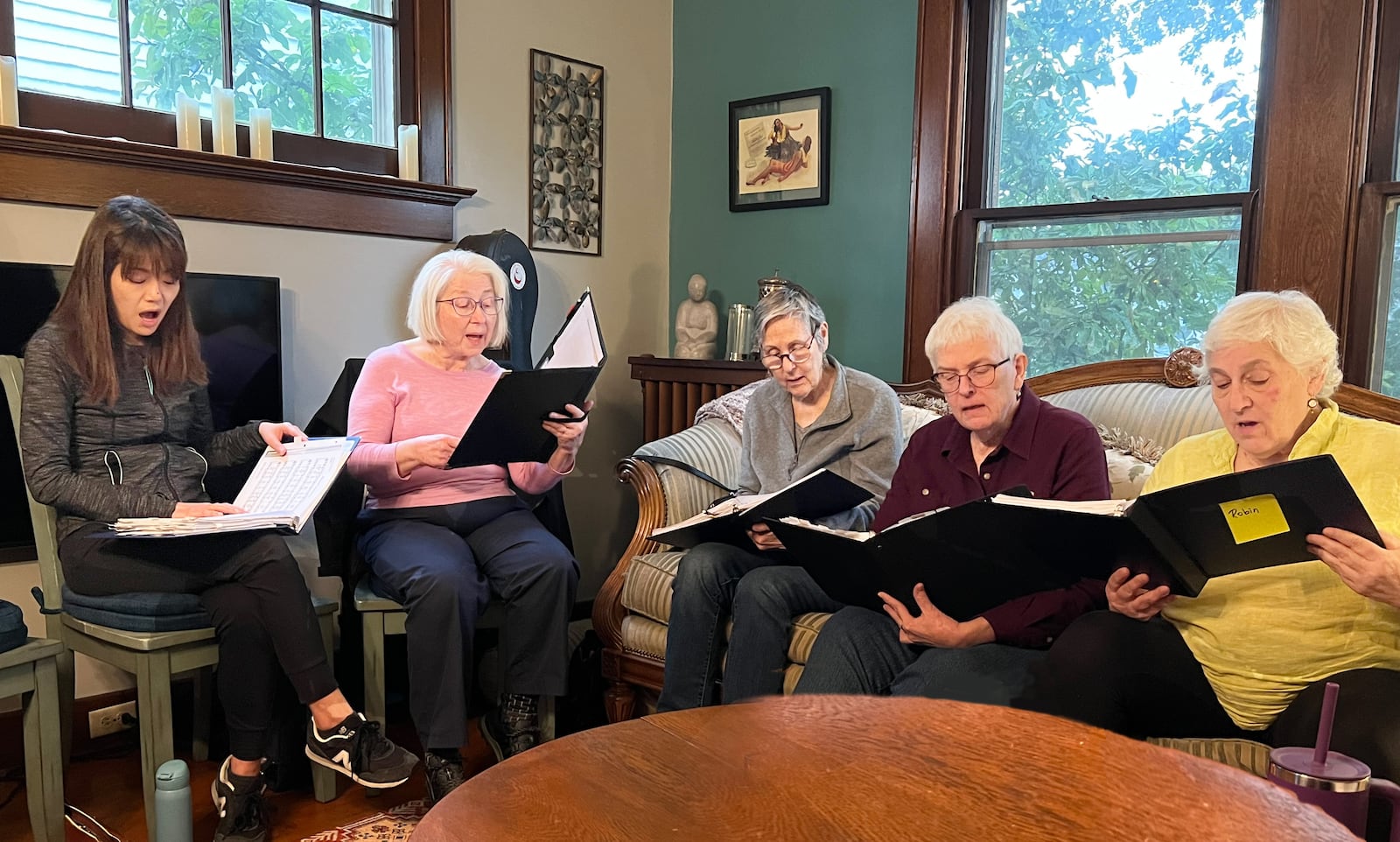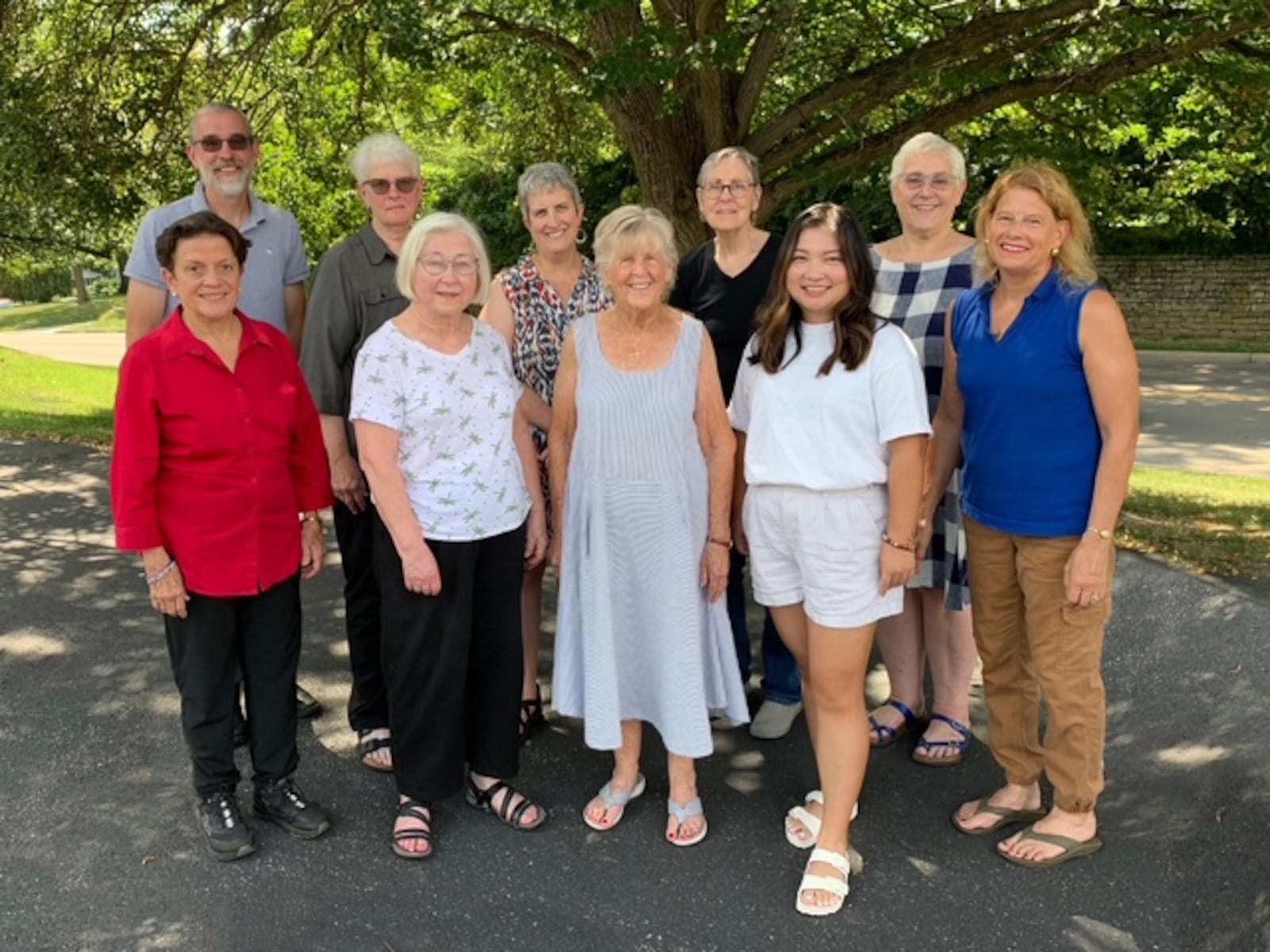The group local to the Dayton area is called Carry Me Home, a name that comes from the song “Swing Low, Sweet Chariot,” one of the most popular in the choir’s repertoire.
“Wherever the patient is, we are there,” said Robin Einzig, who founded the choir along with her partner, Rebecca Whisnant. “We sing wherever the hospice patient is located and wherever we are requested, in coordination with the family that makes the request. That could be at the bedside in a person’s home, in a hospital or nursing home, in a facility such as assisted living or memory care, or in a dedicated hospice facility.”
The mission of a hospice choir is to offer comfort to people nearing the end of life, and to their families.
If they are performing for an individual, three or four singers will typically arrive so that patients don’t feel overwhelmed. They might even sing softly outside a person’s room, so the patient can experience the music without feeling like they need to be alert to pay attention.
“We do occasionally sing in larger groups if it turns out the patient in a more public setting like a facility living room, where other residents can listen as well,” Enzig said. “The length of time we’re there depends entirely on what works best for the patient or their family members. It could be one or two songs, only five to 10 minutes. It could be up to a half hour or so.”
The service is free, and the choice of songs depend entirely on the patient.
“We have our own repertoire which continues to grow but we also try to make a point of practicing and singing songs that the patient most loves, even if they are new to us,” Einzig said.
After consultation with the family, the choir arrives with an assortment of music — traditional, religious and familiar. The chorale’s current membership includes Christians, Jews, atheists and agnostics and they’ll sing for any patient regardless of their religion, including those who do not practice any faith.
Recently, for a patient who loved the Eagles, they learned “Seven Bridges Road.” Another favorite: “When the Saints Go Marching In.”
Jim Slocum, of Oakwood, said the main reason he joined the group was his past experience with hospice.
“Both my parents and my in-laws leveraged hospice in facility and at home in their final days,” he said. “Carry Me Home is exactly what I envisioned. We are all focused on delivering a musical service of comfort and hope to hospice patients wherever they may reside in the Dayton area. I could not ask for a greater service opportunity.”
That service isn’t always easy.
“When we’re going into a home where we know a person is close to death, we meet one another before and after the visit to check in about how everyone is doing,” Einzig said. “We want to know what the experience has been emotionally for them and if they’re OK.”
But there are brighter moments as well.
“We have also sung for people who are happy and alert,” she said.
Paul Tofte was there when the group came to sing for his wife, Linda, and other residents of The Indigo at Beavercreek.
“My wife sang in choirs over much of her life and loved the performance of the Hospice choir,“ he said. ”Several of the residents who also sang in previous years sang along. Music touches our souls and residents as well as family members in attendance were touched by Carry Me Home. Dementia takes so much away from those suffering from it and Carry Me Home gave a little back.”
Whisnant isn’t surprised. She said music is very powerful and reaches in to people even when they have lost their memories.
“We know that when people are dying the last thing to go is hearing and music has tremendous power to connect with people, sooth people and to make people both happy and relaxed.”
How it began
Einzig had a long history of interest and involvement in hospice choirs when she lived in Massachusetts including a weeklong training conducted by the renowned Hallowell Singers from Vermont.
“In my family everybody sang,” she said. “My mother sang to my father when he died in 2007 and my mother and I sang together a lot in her later years. When she was dying and unable to speak in 2016, I sang to her.”
Whisnant’s mom was a professional singer and voice teacher; her daughter was a serious musician for much of her life — first as a cellist and then as a choral singer.
The two women decided they’d like to start their own hospice choir in Dayton.
“There is an extensive hospice choir movement both nationally and internationally,” Whisnant said. “We decided that independence was the best fit for us. We chose to be independent so we could feel free to shape our own mission, decide how we wanted to operate and what sort of music we would most like to sing.”
The women reached out to the major non-profit hospice organizations in the area to see if they would be interested in partnering. They then held introductory meetings and began to rehearse.
Yuri Shibata, a former music therapist who joined the group, was searching for a way to use music to bring joy and support for people.
Carry Me Home, she said, gave her the opportunity to do exactly that.
“It is truly a special moment when I see patients and their families smile after hearing a song that they like and start singing along,” Shibata said." I am thankful to the wonderful choir members —especially Robin and Rebecca for starting this choir— and the patients and their families for sharing their precious time with us."
Who can join the chorus?
You don’t have to have extensive choral experience to join the choir and members range in ages from those in their 30’s to those in their 80s. Potential singers are invited to a “quasi-audition.”
“It’s important that singers be able to carry a tune and sing on pitch,” said Whisnant. “Our work is not a performance, but an offering at a vulnerable time for patients and families so it’s also important that singers be able to sing softly and blend well with others, in a soothing or reverent fashion. It’s not necessary to be able to read music or to ‘sight sing’, but if people do have those skills, both can be helpful.”
Since they often sing in small groups, Einzig said singers need to be able to follow their own part while others around them sing in harmony.
“We sing a cappella at all times, without instruments or accompaniment, which demands a particular sort of skill and confidence,“ she said. ”It’s also important that members be open to feedback from other chorus members and from the leaders.”
The founders say the most important requirement is that singers feel drawn to this mission or “ministry” because the energy singers bring to the bedside is a critical part of what they do.
Karel Stevens is fairly new to the group and wasn’t sure what to expect.
“But from the moment I walked in the door it felt very warm and welcoming,” she said. “One thing that I really like, and I think is so important, is the ability and willingness of Rebecca and Robin to understand and adapt to various situations as each family is unique. Some want to share smiles and songs and happy, fun moments with their loved ones. Sometimes the need is for calmness and quiet comfort.
“The magic of music touches something deep inside and gives patients and their families the opportunity to let go and embrace their feelings and perhaps relieve some of the stress for those few minutes. I found this to be a group of special people with something special to share and I feel honored to sing with them,” she said.
MORE DETAILS
Do you know someone who would benefit from a Carry Me Home visit?
Any friend or family member of someone who is nearing the end of life, who thinks their loved one would be comforted by music and singing, can contact carrymehomechoir@gmail.com.
If the patient is associated with Ohio’s Hospice of Dayton, the caregiver should mention it to the patient’s caseworker or nurse, and the hospice will coordinate the visit.
Would you like to sing with the group?
If you think you’d be interested in joining the choir, reach out by contacting carrymehomechoir@gmail.com, and you’ll receive basic information and an initial questionnaire to fill out and return. The folks from the choir will then be in touch by phone to discuss next steps.
“Our hope is for the choir to reflect the diversity of the greater Dayton area,” said leader Rebecca Whisnant. “If you want to be involved, but are not a strong singer, we may have other roles for you as well, so if this sounds like something you’d like to be involved in, please reach out as well.”
About the Author





